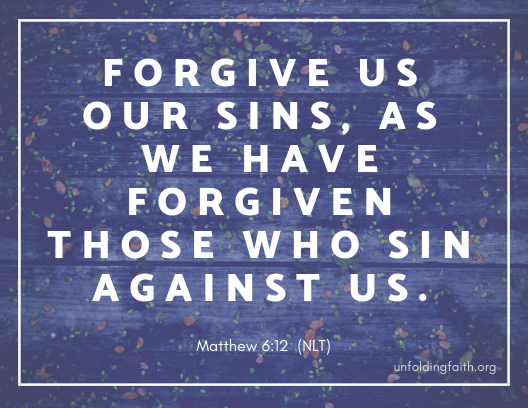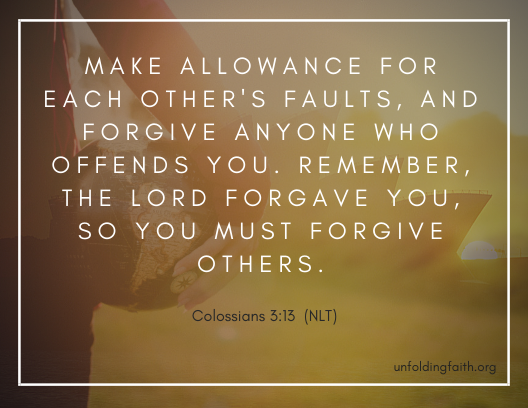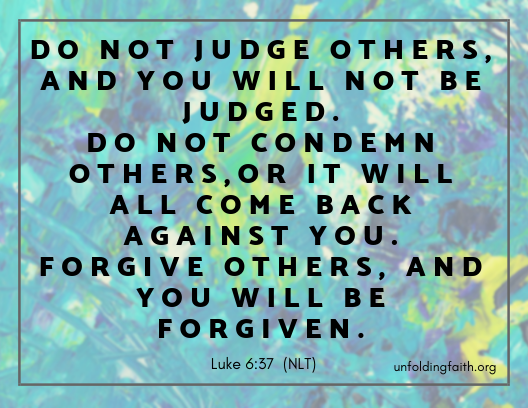
Forgiveness Is Hard, but a Hard Heart Is Worse.
The Christian life is all about forgiveness. It begins with receiving God’s forgiveness through faith in Jesus and his death on the cross; it continues as we then live in that forgiveness, receiving it daily from our heavenly Father and sharing it freely with others. We are called to forgive others; and if we do not, then it is doubtful that we have really understood how very much God has forgiven us.
The above description, taken from one of our favorites, the Christian Basics Bible, lays it all out for us about forgiveness. It is the biblical meaning of forgiveness: We forgive because we have been forgiven.

Jesus is the primary example of someone who readily forgives. Even though Jesus was completely without sin, he demonstrated time and again the spiritual practice of forgiveness. He offers us a forgiveness definition.
Take, for example, the story of Jesus when the religious leaders confronted him about a woman they claimed to have caught committing adultery (see John 8:1-11). The whole thing was a setup so they could trap Jesus into either saying they should stone her for her sins (making him a hypocrite for teaching compassion, forgiveness, love, and grace) or saying they should let her go (thus breaking the law of Moses and condoning adultery). Either way, they thought, he would be proved to be a liar or a lawbreaker, and they could have him arrested.
However, in one of his most famous quotes, Jesus says, “All right, but let the one who has never sinned throw the first stone!” (John 8:7). This stumped the priests because each one knew he couldn’t be the first one to stone her, or the other priests would point out his sins and accuse him of lying. So they all slowly disappeared, and the woman was freed. The only person on earth who could possibly condemn this woman didn’t. And that was because Jesus knew the power of forgiveness.

Jesus also knew that humans are natural sinners, and that for God to forgive our sins, Jesus would have to die for us. But even as he was being tortured and murdered, he asked for God’s forgiveness of the soldiers: “Father, forgive them, for they don’t know what they are doing” (Luke 23:34). Here Jesus demonstrates the ultimate forgiveness, appealing for those who have hurt him in the worst way.
Humans really struggle with forgiving those who hurt us, even if it’s only with unkind words. Could you imagine forgiving your own killers? Okay, so we’re not Christ, but we’re called by God to forgive, and to forgive all those who sin against us.
God wants us to offer significant acts of kindness to those who don’t deserve it. But why is it important to forgive?
In TouchPoints for New Believers, we’re told that “forgiveness is a command, not an option.”

[Forgiveness] is necessary for your own health and your relationship with God. Jesus gave you the perfect example of forgiveness. Forgiveness doesn’t mean you say that the hurt doesn’t exist or that it doesn’t matter, nor does it make everything “all right.” Rather, it allows you to let go of the hurt and let God deal with the one who hurt you. Forgiveness sets you free and allows you to move on with your life. It’s not always easy, but forgiving others who have caused you hurt is the healthiest act you can do for yourself.
God wants us to practice forgiveness so we can have a greater capacity to live for Jesus. Forgiveness is a choice and a commitment to reflect God’s love to others.
—
Need inspiration? Read this amazing story of radical forgiveness from a woman who could only forgive through the strength of her faith.
—

And now what you’re thinking is Okay, so God wants this, and I want to honor God, but exactly how do you truly forgive someone who has really hurt you?
To answer this, we turn to the inimitable Chuck Swindoll, who offers a series of steps to forgiveness from his own Swindoll Study Bible:
- Immediately seek God’s strength. Our tendency is to defend ourselves when we are wronged, to give four or five reasons to ourselves why we don’t deserve it. But responding in that way begins a human-focused tailspin that never ends. We can’t help but be surprised when a close friend or relative turns against us. But if you do not immediately turn the situation over to God, anger or depression will set in, and you will be blue for days, if not weeks, if not months!

- Consider the other person’s viewpoint. Do your best to put yourself in that person’s shoes and think about what he or she has said or done. You may be surprised. Some of it may, in fact, be justified. If not, now is the time to forgive.
- Stay positive and search for God’s lessons. I’m not saying that we should laugh and chuckle our way through life. Life is hard and often harsh. . . . Get counsel from a close friend. . . . A true friend can offer an objective perspective and help you seek the Lord.
- Discover ways of showing kindness to the other person. I don’t mean phony hypocrisy. I don’t mean putting on a big smile while hiding a sharp set of teeth. I mean genuine kindness and friendship. This can only happen if you’ve followed the other steps above.
How much freer in your heart do you think you would be if you were able to learn and practice forgiveness? How much more capacity for love in honor of God do you think you would have?

Take a moment to reflect on your own need for forgiveness. How big has God’s love for you got to be to forgive all you have done?
Now, think about the forgiveness you need to offer others in your life. Does it compare to that which God has offered you? It may be very hard, and a long journey, but use Swindoll’s steps above and try to find that forgiveness in your heart. You’ll be astounded by how much lighter you feel, and how much freer you will be.
—
We want to hear your story! Have you struggled with forgiveness? How have you overcome this and finally found your own freedom in forgiveness? Let us know by e-mailing: unfoldingfaithmail@gmail.com.
Featured Resources:
Christian Basics Bible by Martin H. Manser and Michael H. Beaumont: Whether you are reading the Bible for the first time or not, its variety of material—not to mention its length—can seem overwhelming. Understanding both what we believe and why we believe it provides the foundation for a grounded Christian faith. The Christian Basics Bible is filled with features designed to help readers—especially those new to the Bible—connect biblical teachings to Christian beliefs and to see how those beliefs apply to their lives.
The Swindoll Study Bible by Chuck Swindoll, winner of the 2018 Christian Book Award for Bible of the Year: The Swindoll Study Bible offers the best of Chuck Swindoll’s wit, charm, pastoral insight, and wise biblical study directly to you as you study God’s Word. Chuck’s warm, personal style comes across on every page, and his informed, practical insights get straight to the heart of the Bible’s message for the world today. Reading each part of this study Bible is like hearing Chuck speak God’s Word directly to your heart. It will both encourage your faith and draw you deeper into the study of God’s Word.
TouchPoints for New Believers, by Ronald A. Beers and Amy E. Mason: An excellent resource for anyone new to the faith, or those looking for concise answers for those exploring faith. This book offers answers to major questions from new believers in Christ and supports it all with Scripture.
85

